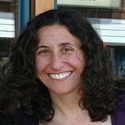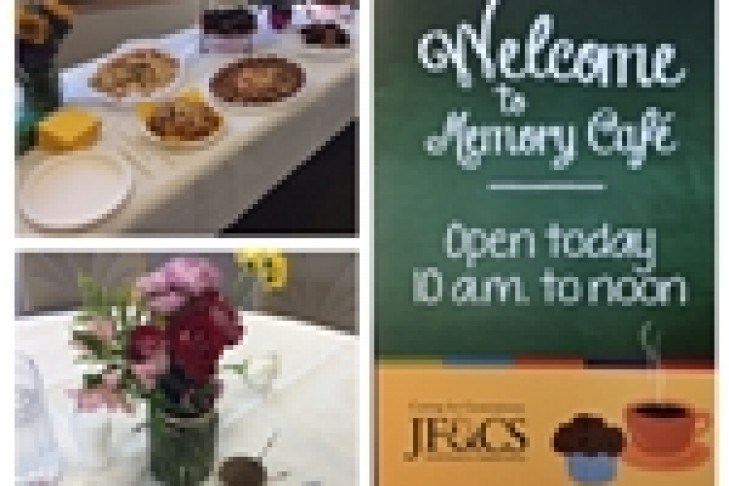Posted by Beth Soltzberg
The Memory Café Percolator Network helps memory cafés spread across Greater Boston and other parts of Massachusetts. As the coordinator of the Percolator, I know that it takes more than opening the doors to truly invite others inside. Memory cafés are social gatherings for people living with dementia and their care partners and while each café is run independently, one of the guiding principles is that they strive to respond to the needs, interests, and cultural backgrounds of the wide range of people who attend them. Alzheimer’s and related disorders are conditions that affect people from all walks of life. The heart of the memory café is the social connection that it offers to people who may have become isolated due to dementia. So through refreshments, music, caring staff and volunteers, and a safe, comfortable atmosphere, the cafés create a sense of home.
One growing population of people living with dementia is those who also have a developmental disability. People with developmental disabilities are living longer than ever before so many are now developing dementia and people with Down syndrome and traumatic brain injury have a particularly high risk of developing a condition that causes dementia as they age. We applaud the Massachusetts Department of Developmental Services (DDS) for being the first in the nation to support the launch of memory cafés that are designed to include people with dementia who also have developmental disabilities. DDS is offering seed funding to new cafés working toward this goal.
In response, I have been leading trainings on starting a memory café around Massachusetts in collaboration with DDS. DDS leaders recognize that truly including those who have dementia plus a developmental disability requires more than just saying that the café is open to all; it requires collaboration between aging and disabilities service providers as well as listening to the true experts – those living with dementia. There are barriers: professionals from these two service systems have different funding sources and ways of serving clients, and quite simply, often don’t know each other. While memory cafés have always worked to end stigma towards those living with dementia, they now must grapple with the stigma that exists toward those with developmental disabilities as well. This is hard work. There is no one more capable of doing it, though, than people who have spent their careers advocating for full inclusion of people with disabilities and older adults.
In addition to striving to make all memory cafés truly accessible and responsive to the wide variety of people with dementia, it is exciting to see the seeds of new cafés that are embedded in particular cultural communities. For example, we hope to see the launch of the first Spanish-speaking memory cafés this year.
While people living with Alzheimer’s or related disorders may share a diagnosis that shapes their life and the life of the people who are close to them in many similar ways, they remain unique individuals with their own culture, personality, and developmental needs. These aspects of who they are don’t go away with a diagnosis; in fact, they may become more important than ever. Memory cafés in Massachusetts are working to respond. Because for all of us, there’s no place like home.

This post has been contributed by a third party. The opinions, facts and any media content are presented solely by the author, and JewishBoston assumes no responsibility for them. Want to add your voice to the conversation? Publish your own post here. MORE

